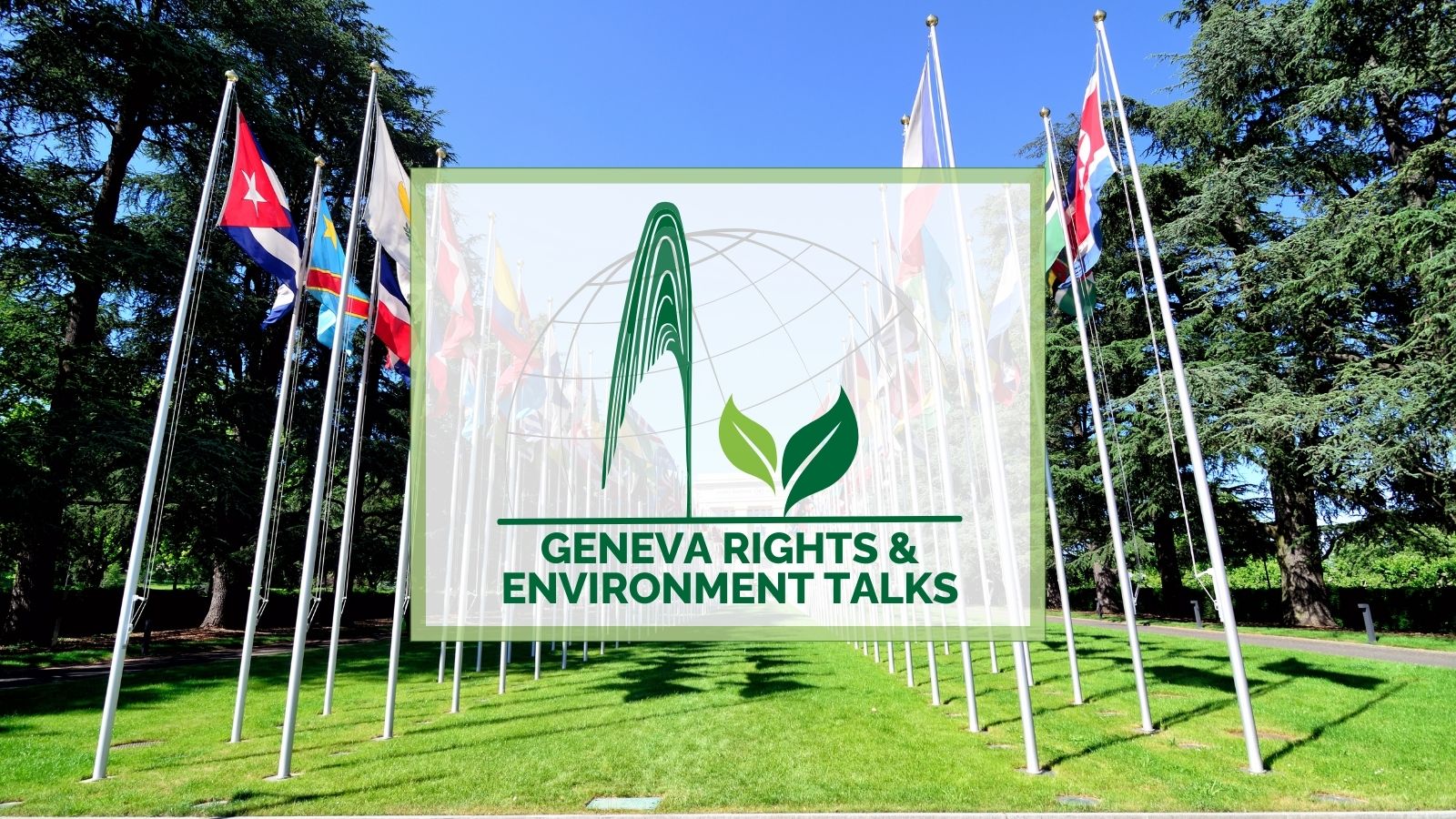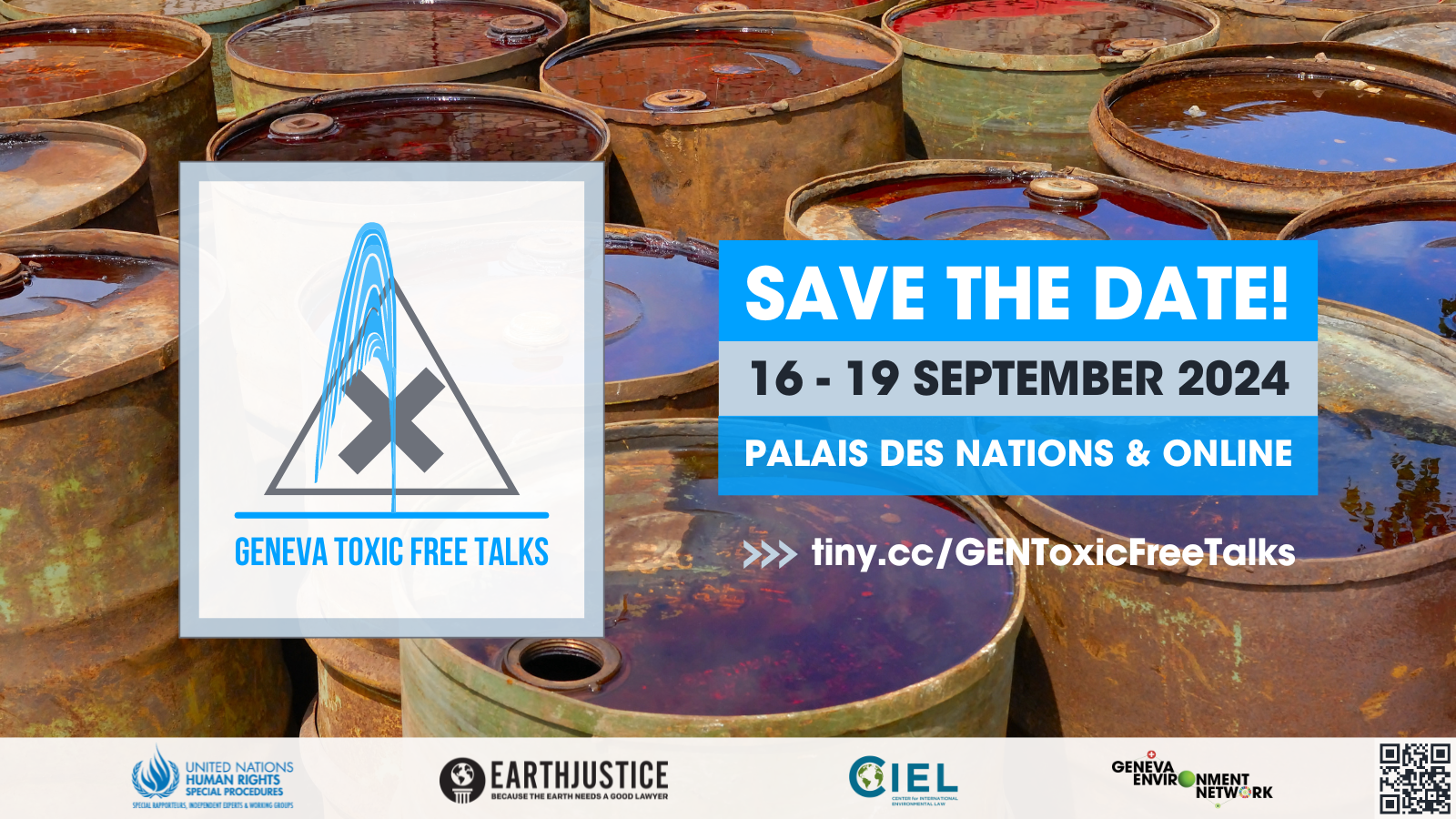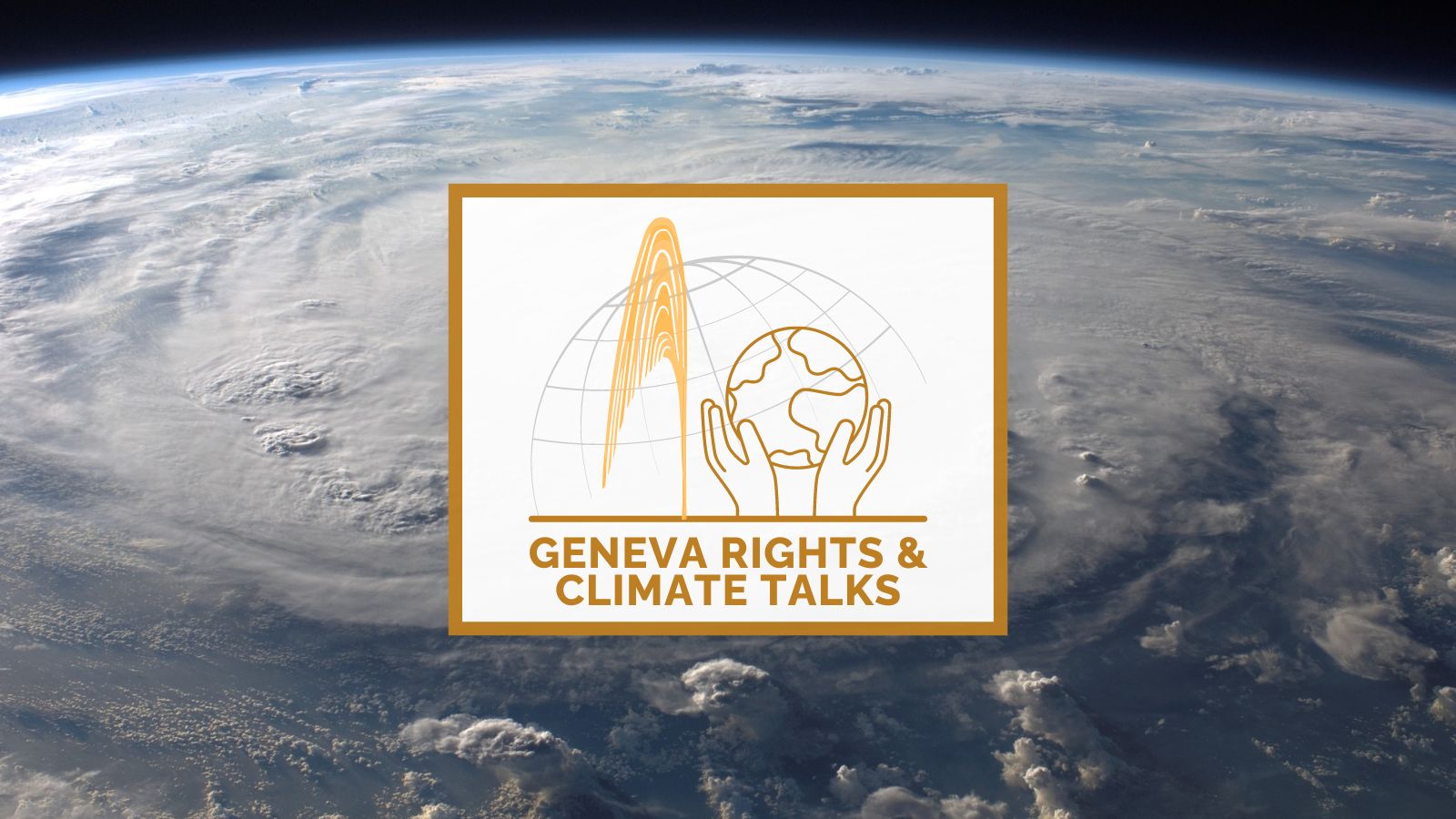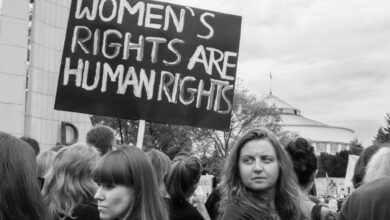Human Rights and the Environment – Geneva Environment Network

Human Rights and the Environment
Human rights and the environment are intrinsically intertwined: a safe, clean, healthy and sustainable environment is essential in the enjoyment of our human rights; whilst polluted, hazardous and otherwise unhealthy environments potentially violate our human rights.
Environmental rights means any proclamation of a human right to environmental conditions of a specified quality. This means that they are not abstract, remote, irrelevant concepts; they are measurable, prominent and functional aspects of society and its ecology. More than 100 countries incorporate constitutional rights to a healthy environment. When environmental rights are violated, people and the planet suffer from reduced health and well-being.
On 28 July 2022, the United Nations General Assembly (UNGA) adopted a resolution declaring that everyone on the planet has a right to a healthy environment. This landmark decision is the result of decades of mobilization of various stakeholders. The resolution, based on a similar text adopted in October 2021 by the Human Rights Council, calls upon States, international organizations, and business enterprises to scale up efforts to ensure a healthy environment for all.
LATEST NEWS
- Healthy Environment: A Human Right and Customary International Law | UN SR Astrid Puentes | 29 January 2025
The human right to a clean, healthy and sustainable environment can be considered customary international law and, therefore, binding for States. The article describes why the requirements for this recognition are fulfilled and thus, the right should be recognized by the International Court of Justice.- Special Rapporteur on the right to a clean, healthy and sustainable environment welcomes decisions supporting ocean protection in Norway and Thailand, at the beginning of a critical year for the ocean and human rights | SR right to healthy environment | 24 January 2025
Recent decisions in Norway and Thailand mark positive steps towards ocean protection. “These decisions align with the urgent need to promote sustainable practices and prevent further severe and irreversible damage, including the increasing impacts of fossil fuels and plastic contamination.”- Cambodia: Experts alarmed over forced resettlement due to heritage conservation | OHCHR | 13 December 2024
Independent human rights experts* today expressed alarm over ongoing forced resettlement of around 40,000 people, including Indigenous Peoples, from their homes and lands in Angkor, Cambodia.
The Role of International Geneva
Geneva is the main international hub on human rights issues and the majority of international universal human rights organs are based here.
United Nations Human Rights Council
The United Nations Human Rights Council is an inter-governmental body within the United Nations system made up of 47 States responsible for the promotion and protection of all human rights around the globe. It has the ability to discuss all thematic human rights issues and situations that require its attention throughout the year. The UN Human Rights Council meets at the UN Office at Geneva.
Past HRC Sessions
Environment @ HRC56 | Environment @ HRC55 | Environment @ HRC54 | Environment @ HRC53 | Environment @ HRC52 | Environment @ HRC51 | Environment @ HRC50 | Environment @ HRC49 | Environment @ HRC48 | Environment @ HRC47 | Environment @ HRC46 | Environment @ HRC45 | Environment @ HRC44 | Environment @ HRC43
Office of the High Commissioner for Human Rights
The Office of the High Commissioner for Human Rights (OHCHR) is the leading UN entity on human rights and represent the world’s commitment to the promotion and protection of the full range of human rights and freedoms set out in the Universal Declaration of Human Rights. OHCHR is home for secretariats of international human rights treaty bodies and the UN Human Rights Council.
Volker Türk is the High Commissioner for Human Rights, often known as the UN human rights chief.
Treaty Bodies
The human rights treaty bodies are committees of independent experts that monitor implementation of the core international human rights treaties. Each State party to a treaty has an obligation to take steps to ensure that everyone in the State can enjoy the rights set out in the treaty.
Currently, there 10 treaty bodies that are established by nine human rights international treaties and one optional protocol . The treaty bodies are composed of independent experts of recognized competence in human rights, who are nominated and elected for fixed renewable terms of four years by State parties.
Recently, UN human rights experts also welcomed the impending entry into force of the first environmental human rights treaty in Latin America and the Caribbean, known as the Escazú Agreement, lauding it as a ground-breaking pact to fight pollution and secure a healthy environment. The Escazú Agreement also includes strong protections for Indigenous Peoples and environmental human rights defenders, at a time when they are subject to unprecedented levels of violence.
Universal Periodic Review
The Universal Periodic Review (UPR) is a unique process which involves a review of the human rights records of all UN Member States. The UPR is a State-driven process, under the auspices of the Human Rights Council, which provides the opportunity for each State to declare what actions they have taken to improve the human rights situations in their countries and to fulfill their human rights obligations.
Aarhus Convention
The Aarhus Convention on access to information, public participation and access to justice in environmental matters, hosted by UNECE, is also devoting a part of its work on the protection of environmental defenders. The Escazú convention in Latin America is working in the same direction.
Special Rapporteurs
Special Procedures
There are other types of bodies on human rights such as the Special Procedures who are independent human rights experts with mandates to report and advise on human rights from a thematic or country-specific perspective.
Special procedure mandate-holders are non-paid and elected for 3-year mandates that can be renewed for another term. They help advance human rights, focusing on different themes, some of which are related to the environment.
Right to a Clean, Healthy, and Sustainable Environment
What is the right to a healthy environment?
The adoption by the General Assembly (GA), the principal policy-making body of the UN, of the resolution recognizing the human right to a clean, healthy, and sustainable environment marked a landmark moment which has sent a powerful message that there is widespread, worldwide support for this right – which is already recognized in 156 countries at the national and regional levels.
The resolution on the right to a healthy environment was the result of States’ commitment on environmental issues, many years of advocacy and collaboration by national human rights institutions, civil society organizations, Indigenous Peoples, children and young people, and business actors, among others, and supported by UN entities. Putting rights at the centre of addressing the triple planetary crisis – climate change, biodiversity and nature loss, and pollution – is more important now than ever and an imperative for achieving the Sustainable Development Goals (SDGs).
A Historic Resolution at the Human Rights Council
An appeal to the Human Rights Council to recognize without delay the right of all to a safe, clean, healthy and sustainable environment was shared with all member states ahead of HRC45. This appeal, entitled “The Time Is Now“, has been signed by more than 1,150 organizations from civil society, social, environmental, youth, gender equality and human rights movements, trade unions, Indigenous Peoples, and local communities, from more than 100 countries. The call was conveyed at HRC46 in a joint NGO statement.
On 9 March 2021, over 60 nations urged the HRC to recognize the right to a healthy environment, moving a step closer towards adding a new universal human right that also benefits the planet to the list. Simultaneously, the UN Environment Programme delivered a joint statement on behalf of 15 UN entities calling for global recognition, implementation, and protection of the human right to a safe, clean, healthy and sustainable environment.
At the 48th session of the Human Rights Council, in October 2021, States recognized, for the first time, that having a clean, healthy and sustainable environment is a human right. Resolution A/HRC/48/13 forwarded by the core group on Human Rights and the Environment – Costa Rica, Maldives, Morocco, Slovenia and Switzerland – was adopted with 43 votes in favor and 4 abstentions.
UN special rapporteur on human rights and environment David Boyd has called the HRC’s recognition of the human right to a healthy environment a historic breakthrough that has the potential to improve the life of everyone on the planet.
The world’s future looks a little bit brighter today. The United Nations, in an historical development, has for the first time recognised that everyone, everywhere, has a human right to live in a safe, clean, healthy and sustainable environment. Read full article →
A Historic Resolution at the UN General Assembly
On 28 July 2022, the United Nations General Assembly adopted a resolution declaring that everyone on the planet has a right to a healthy environment. This landmark decision (A/RES/76/300), co-sponsored by 117 member States, is the result of decades of mobilization of various stakeholders. The resolution, based on a similar text adopted in October 2021 by the Human Rights Council, calls upon States, international organizations, and business enterprises to scale up efforts to ensure a healthy environment for all. → See countries’ positions
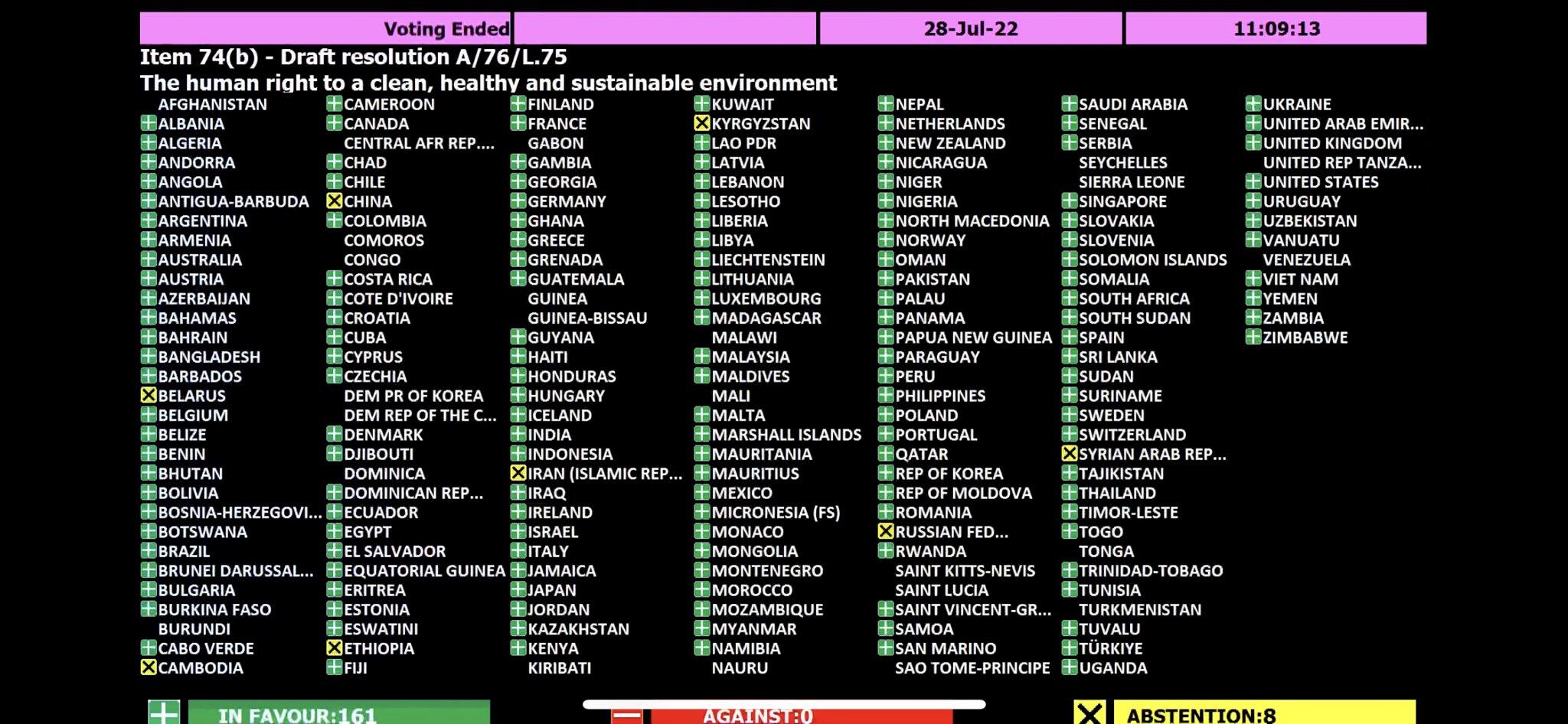
Today is a historic moment, but simply affirming our right to a healthy environment is not enough. The General Assembly resolution is very clear: States must implement their international commitments and scale up their efforts to realize it. We will all suffer much worse effects from environmental crises, if we do not work together to collectively avert them now.
– Michelle Bachelet, 28 July 2022
Recognition in Other Bodies
Council of Europe
In a Recommendation on human rights and the protection of the environment adopted on 27 September 2022, the Council of Europe calls on its 46 member states to actively consider recognising, at national level, the right to a clean, healthy and sustainable environment, as a human right. → Read the resolution
Geneva Rights and Environment Talks
The Special Rapporteur on the right to a clean, healthy and sustainable environment reports to the Human Rights Council during its March session on issues related to their mandate. The Geneva Rights and Environment Talks aim to harness the opportunity of this moment of the year to reflect on the challenges posed by the rapid decline of nature and biodiversity, and on how Geneva contributes to bringing together the actors working towards ensuring the right to a clean, healthy, and sustainable environment is upheld for all.
Pollution, Hazardous Substances, and Human Rights
Though integral to almost all sectors of society, the lack of environmentally sound management of chemicals and waste can have long-lasting negative impacts on human health, society, and on the environment. Such negative impacts violate our human right to live in a clean, healthy, and sustainable environment. Stakeholders, particularly States and businesses, must ensure that this right is upheld when conducting activities and operations on the ground.
Advancing the Right to Live in a Non-toxic Environment and the Role of Geneva
Highlighting the role stakeholders from International Geneva as a global hub for the governance of hazardous substances, learn how they are actively working to reduce the environmental and health risks from chemicals, including their human rights implications.
Geneva Toxic Free Talks
The Special Rapporteur on toxics and human rights reports every Fall to the Council and to the UN General Assembly on issues related to their mandate. The Geneva Toxic Free Talks aim to harness the opportunity of this moment of the year to reflect on the challenges posed by the production, use and dissemination of toxics and on how Geneva contributes to bringing together the actors working in reversing the toxic tide.
On the sidelines of HRC57, the 2024 edition of the Toxic Free Talks will take place from 16 to 19 September 2024, with conferences and discussions, highlighting the work of the Special Rapporteur and of organizations in the struggle for the right to live in a toxic-free environment.
Climate Change and Human Rights
Climate change is one of the greatest existential threats for people and the planet. Its harmful effects undermine the full enjoyment and realization of all human rights, posing a serious risk to the fundamental rights to life, health, food and an adequate standard of living of individuals and communities across the world and disproportionately affecting those who are already in situations of vulnerability.
Advancing Rights-based Climate Action and the Role of Geneva
Referred to as the world capital for multilateralism and home to numerous international organizations, permanent missions, non-governmental organizations and other institutions based in Geneva that place climate issues at the center of their work, Geneva is at the center of numerous debates and negotiations, including cross-disciplinary expertise and discussions on human rights and climate change. Placing human rights at the heart of climate action, International Geneva is mobilized in the fight against climate change. Consult the page sharing how several Geneva-based stakeholders that advance the work on human rights and climate change.
Geneva Rights and Climate Talks
The Special Rapporteur on human rights and climate change reports to the Human Rights Council during its June session on issues related to her mandate. The Geneva Rights and Climate Talks aim to harness the opportunity of this moment of the year to reflect on the challenges posed by the impacts of climate change, and on how Geneva contributes to bringing together the actors working towards placing human rights at the heart of climate action.
Biodiversity and Human Rights
Biodiversity and human rights are closely interlinked. Without healthy, functioning ecosystems, which depend on healthy biodiversity, there would be no clean air to breathe, safe water to drink or nutritious food to eat. A healthy biodiversity and functioning ecosystems are essential for human societies. About half of the world’s GDP – about USD 44 trillion – is dependent on natural resources, while nature provides at least USD 125 trillion worth of services annually. Nature also “underpins all dimensions of human health and contributes to non-material aspects of quality of life”, as indicated by the report, Global Assessment Report on Biodiversity and Ecosystem Services, by the Intergovernmental Science-Policy Platform on Biodiversity and Ecosystem Services (IPBES, 2019).
Human Rights-based Approach in Addressing Biodiversity Loss
In the same manner, the loss of biodiversity has severe consequences for human well-being and human rights. Disruptions in the stability and continuity of ecosystems and the goods and services they provide can negatively impact the full enjoyment of human rights, including the right to life, food, water and sanitation, health and to a clean, healthy and sustainable environment (A/HRC/34/49).
The recognition of the right to clean, healthy and sustainable environment by the Human Rights Council (A/HRC/Res/48/13) and the UN General Assembly (A/Res/76/300) is crucial to tackling the unprecedented biodiversity crisis that is threatening human well-being, human rights and the future of life on Earth. Learn how Geneva actors and stakeholders are advancing the human rights and biodiversity agenda.
Environmental Human Rights Defenders
Environmental human rights defenders are those who strive to protect and promote human rights relating to the environment. However, evidence suggests that they remain highly vulnerable and under attack across the globe. As the field of human rights obligations related to a clean, safe, healthy and sustainable environment expands, the need to protect those who protect our environmental rights also becomes more urgent.
According to the United Nations, environmental human rights defenders (EHRDs) are “individuals and groups who, in their personal or professional capacity and in a peaceful manner, strive to protect and promote human rights relating to the environment, including water, air, land, flora and fauna.”
Environmental defenders, many of whom are part of or represent Indigenous Peoples, remain highly vulnerable and under attack across the globe. Evidence suggests that as the climate crisis intensifies, violence against EHRDs also increases, whether through assaults, murders, intimidation, harassment, stigmatization, and criminalization.
As the field of human rights obligations related to a clean, safe, healthy and sustainable environment expands, the need to protect those who protect our environmental rights also becomes more urgent.
Business and Human Rights
Human rights and the environment are intrinsically intertwined due to the environmental nature of some human rights, which have been progressively more recognized and protected. If we are to tackle environmental challenges without leaving anyone behind, businesses must respect both the environment and environmental rights, and ensure they are not violated in their conduct of business operations and beyond..
As Geneva is the main international hub on human rights issues, where majority of international universal human rights organs are based, this update provides a brief overview on the connections among business, environment and human rights, and the role International Geneva plays in strengthening such links.
Human Rights Day | 10 December
Every year on 10 December, the world celebrates Human Rights Day, the day when, in 1948, the United Nations General Assembly adopted the Universal Declaration of Human Rights. Decades since this landmark occasion, human rights have become more recognized and more guaranteed across the globe. The UDHR has since served as the foundation for an expanding system of human rights protection that today focuses also on groups in vulnerable situations such as persons with disabilities, Indigenous Peoples and migrants.
However, the promise of the UDHR, of dignity and equality in rights, has been under a sustained assault in recent years. As the world faces challenges new and ongoing – pandemics, conflicts, exploding inequalities, morally bankrupt global financial system, racism, climate change – the values, and rights enshrined in the UDHR provide guideposts for our collective actions that do not leave anyone behind.
In the face of environmental degradation, including the triple crisis of climate change, pollution and biodiversity loss, equality for all also means advancing the right to a healthy environment and climate justice. These impacts disproportionately impacts persons, groups and peoples in vulnerable situations, and exacerbate existing inequalities that negatively affect the human rights of present and future generations. As follow-up to the UN Human Rights Council and the UN General Assembly’s recognition of the human right to a clean, healthy and sustainable environment, International Geneva is taking urgent action to respect, protect and fulfill this right. Such action should be the cornerstone of a new human rights-based economy that will produce a green recovery from COVID-19 and a just transition.
Human Rights Day 2024 | Our Rights, Our Future, Right Now.
Human rights can empower individuals and communities to forge a better tomorrow. By embracing and trusting the full power of human rights as the path to the world we want, we can become more peaceful, equal and sustainable. This year’s Human Rights Day focuses on how human rights are a pathway to solutions, playing a critical role as a preventative, protective and transformative force for good.
Human rights impact everyone, every day. This campaign, Our Rights, Our Future, Right Now, will show the tangible impact of human rights by focusing on relevant global issues, showcasing impact, successes and practical solutions. This continues the forward-looking work of UN Human Rights Chief Volker Türk’s vision statement, Human Rights: A Path for Solutions, presented as the wrap up to Human Rights 75, which commemorated the 75th anniversary of the Universal Declaration of Human Rights.
United Nations Environment Programme and Human Rights
The United Nations Environment Programme (UNEP) works to advance the inclusive and effective implementation of environmental rights law through, protecting environmental defenders, strengthening legal frameworks, building capacities of relevant stakeholders and advancing universal recognition of the right to a healthy environment.
As environmental issues have grown within the work of the Human Rights Council, there has been an agreement between the High Commissioner and the Executive Director of UNEP. One of the outcomes of this close collaboration is the publication on the response to Covid called: “Human Rights, the Environment and Covid-19”. It gives the keys elements on how the environment and human rights are interlinked in what happened with Covid and also with the development of the Covid response.
UNEP and OHCHR Agreement
In 2019, UNEP and the OHCHR have prioritized efforts to promote and protect environmental and human rights with the signing of a new cooperation agreement. The heads of the two UN bodies agreed that although more than 150 countries have recognized the human right to a healthy environment in their constitutions, national laws and jurisprudence, or through regional agreements, significantly more work is needed to inform policy-makers, justice institutions and the public on the various ways they can take action to uphold this right.
Strengthened cooperation will aim to drive better protection of environmental human rights defenders and their families, who frequently face violence – including killings and sexual violence, smear campaigns, and other forms of intimidation. The partnership will also encourage greater acceptance by leaders and governments of the human right to a healthy environment pursuing efforts toward its global recognition. It will seek to increase support to national governments to promote human rights-based policies, particularly in terms of sustainable management of natural resources, development planning, and action to combat climate change.
To support the growing community of practice between the two entities, UNEP and OHCHR are compiling updates in the Environment Rights Bulletin. It showcases best practices related to processes at the country, regional and global levels of relevance to the human rights-environment nexus. The latest edition published in October 2021 provides global updates and resources, as well as a focused section on biodiversity prepared on the occasion of the opening of CBD COP15.
Human Rights & Environment @ UN General Assembly
At the 79th session of the UN General Assembly, various UN Special Rapporteurs presented their reports to the Assembly, including:
- A/79/160 | Mobile Indigenous Peoples | Special Rapporteur on the rights of Indigenous Peoples
The report considers the situation of mobile Indigenous Peoples, addressing the challenges they face to their legal recognition, land rights and mobility, including transboundary movement, as well as the challenges caused by the impact of armed conflict, and also considers the unique situation of Indigenous Peoples living in voluntary isolation and initial contact. - A/79/163 | Gender and toxics | UN Special Rapporteur on toxics and human rights
The report elaborates on the State’s duty to prevent hazardous substances and waste from generating or deepening gendered injustices, especially against women and girls, gender-diverse persons and poor men, and especially when they are from marginalized communities. - A/79/168 | Climate justice: loss and damage | UN Special Rapporteur on the right to development
The report develops a climate justice framework comprising four pillars (mitigation, adaptation, remediation and transformation) and 12 overarching human rights principles. The UN Special Rapporteur proposes that climate change-related loss and damage, which undermines the right to development of individuals and communities, especially those living in developing countries, should be seen as part of the remediation pillar of the climate justice framework. - A/79/176 | Access to information on climate change and human rights | UN Special Rapporteur on human rights and climate change
The report explores the specificities, challenges and good practices related to access to information on climate change and human rights. It clarifies States’ international obligations, individually and as part of international cooperation, as well as the responsibility of businesses. - A779/270 | Overview of the implementation of the right to a clean, healthy and sustainable environment | UN Special Rapporteur on the human right to a clean, healthy and sustainable environment
Identifying key progress as well as the most pressing challenges and opportunities, the report aims to advance the understanding of differentiated impacts, considering situations of vulnerability, and through an intersectional lens, and identifies conclusions and provides recommendations to States on how to fulfil their human rights obligations.
Learning
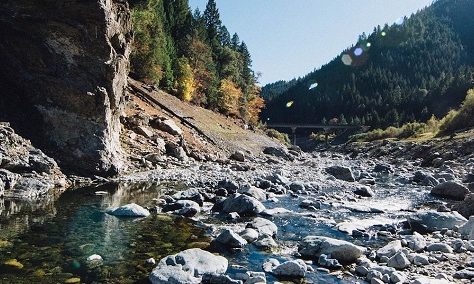
Introduction to Human Rights and the Environment
UNITAR / UNEP / InforMEA
The Introduction to Human Rights and the Environment course covers the relationship between human rights and the environment; explains the bases for the application of human rights to environmental issues, and the procedural and substantive obligations relating to the environment; and gives examples of constitutions that have incorporated a right to a healthy environment, good practices in procedural and substantive environmental protection.
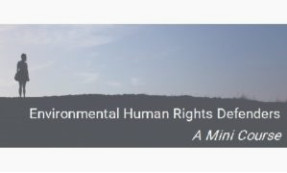
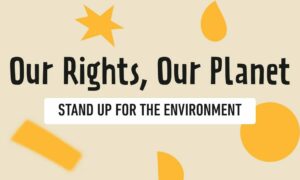
Our Rights, Our Planet Online Training
Articolo12 / Children’s Environmental Rights Initiative (CERI) / Terre des Hommes (TdH) / UNEP
The online resource is a free training tool for young people to learn about and stand up for their environmental rights.
Resources
GEN Updates
GEN Human Rights and Environment Talks
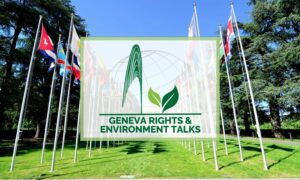
Geneva Rights and Environment Talks
The Special Rapporteur on the right to a clean, healthy and sustainable environment reports to the Human Rights Council during its March session on issues related to their mandate. The Geneva Rights and Environment Talks aim to harness the opportunity of this moment of the year to reflect on the challenges posed by the rapid decline of nature and biodiversity, and on how Geneva contributes to bringing together the actors working towards ensuring the right to a clean, healthy, and sustainable environment is upheld for all.
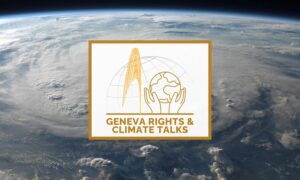
Geneva Rights and Climate Talks
The Special Rapporteur on human rights and climate change reports to the Human Rights Council during its June session on issues related to their mandate. The Geneva Rights and Climate Talks aim to harness the opportunity of this moment of the year to reflect on the challenges posed by the impacts of climate change, and on how Geneva contributes to bringing together the actors working towards placing human rights at the heart of climate action.

Geneva Toxic Free Talks
The Special Rapporteur on toxics and human rights reports every fall to the Council and to the UN General Assembly on issues related to their mandate. The Geneva Toxic Free Talks aim to harness the opportunity of this moment of the year to reflect on the challenges posed by the production, use, and dissemination of toxics and on how Geneva contributes to bringing together the actors working in reversing the toxic tide.
GEN Events
Climate Change and Human Rights
Toxics and Human Rights
Biodiversity and Human Rights
Right to a Healthy Environment
Environmental Human Rights Defenders
Other Themes
Environment @ Human Rights Council
HRC 58
23 February to 4 April 2025
HRC 57
9 September to 11 October 2024
HRC 56
18 June to 12 July 2024
HRC 55
26 February to 5 April 2024
HRC 54
11 September to 13 October 2023
HRC 53
19 June to 14 July 2023
HRC 52
27 February – 4 April 2023
HRC 51
12 September – 7 October 2022
HRC 50
13 June – 8 July 2022
HRC 49
28 February – 1 April 2022
HRC 48
13 September – 11 October 2021
HRC 47
1 June – 14 July 2021
HRC 46
22 February – 24 March 2021
HRC 45
14 September – 7 October 2020
HRC 44
30 June – 17 July 2020

